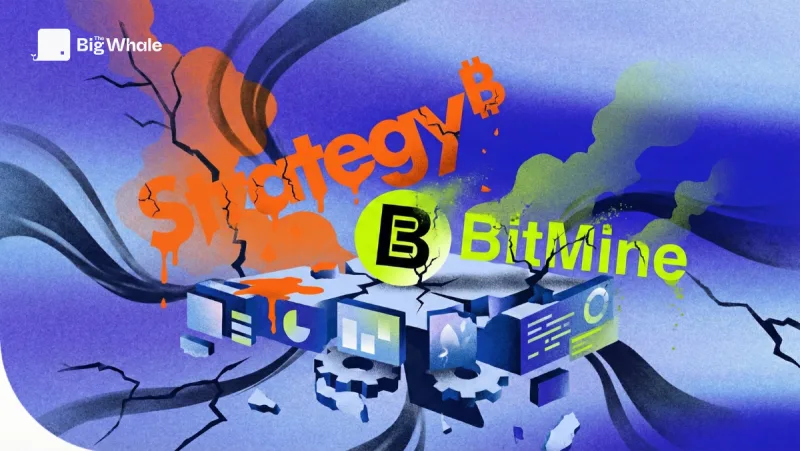TBW - Stablecoins: the United States adopts the GENIUS Act, what you need to know

This is a major step in the structuring of the stablecoin market. On Tuesday, the US Senate passed by a large majority the GENIUS Act, a piece of legislation designed to lay the foundations for a genuine federal framework for the issuance of stablecoins in the United States.
Against a backdrop of continued growth in this market (more than $250 billion in capitalisation and daily volumes exceeding those of Visa) the passage of this legislation marks a regulatory turning point that could reposition the United States at the head of the digital financial infrastructure race.
The text, backed by a cross-party alliance and supported by the Trump administration, defines the legal status of "authorised issuer of payment stablecoin".
Only institutions meeting a series of criteria will now be able to issue dollar-backed tokens. These include insured banks, their subsidiaries or even qualified non-bank players at federal or state level, provided they meet requirements close to the national framework.
Each token will have to be 100% backed by highly liquid assets (cash deposits, balances at the Fed or Treasury bills). The text prohibits any rehypothecation, and requires the monthly publication of an audited report on reserves, as well as an annual independent audit.
Objective: to impose a level of transparency equivalent to that of the traditional banking sector, while leaving room for innovation for emerging players.
>> Report stablecoins 2024: an ever-richer ecosystem

The big breakthrough: a federal framework instead of multiple local licences
But the great revolution of the GENIUS Act is the introduction of a federal pre-emption principle. Until now, stablecoin issuers had to obtain a licence in each state in which they wished to operate, in a fragmented system of "money transmitter licences".
The new framework puts an end to this complexity: a federally-licensed issuer will now be able to offer its services nationwide without having to comply with local regulations.
Even state-licensed issuers will be able to receive a "passport "to operate nationwide, provided they do not exceed $10 billion in assets and demonstrate that their supervisory regime is "substantially similar" to that of the OCC.
For fintechs, this is a radical simplification of the operational framework.
Ability to block any foreign stablecoin
The text also provides for a substantial regulatory arsenal to guarantee the system's compliance and security. Issuers and their custodians will have to be able to freeze funds in the event of a court injunction. The US Treasury Department will have the power to block any foreign stablecoin that does not meet the criteria set out in the law.
This provision is aimed in particular at regaining control in the face of the domination of certain non-US players, foremost among them Tether (USDT), which alone accounts for more than 60% of the market. The GENIUS Act seeks to impose a level of transparency that Tether, despite its recent efforts, still does not fully guarantee.
Another important new feature: the penalties for infringement are very severe. Unauthorised issuance of stablecoins could be punishable by a fine of up to $1 million per day and five years' imprisonment. This is a clear signal that the period of legal uncertainty is coming to an end, and that "experimentation" on the fringes of the banking system will now be very tightly controlled.
Industry and Circle applaud
Not surprisingly, the crypto industry has welcomed the adoption of the text. Jeremy Allaire, CEO of Circle, sees it as a major step forward for the adoption of the USDC and a recognition of the role stablecoins can play in tomorrow's financial system.
Markets have reacted positively: shares in companies with exposure to the sector such as Circle, Coinbase and Paxos have seen a clear upturn in interest. In fact, some fund managers have begun to reallocate their portfolios in anticipation of wider regulatory adoption.
The text offers a clear framework for institutional investors who were still hesitant to gain exposure to legally ill-defined assets.
>> Tribune - Stablecoins are a strategic issue and the digital euro a paper tiger
The text enacted by the end of the summer
The text must now be voted on by the House of Representatives, where the Republicans have a majority. If the timetable is adhered to, the GENIUS Act could be signed into law by Donald Trump before the end of the summer. A plausible hypothesis, given that the current president is sending out so many signals in favour of the crypto industry, between support for stablecoins, criticism of the SEC and a desire to strengthen the status of the digital dollar.
One uncertainty remains, however: some members of parliament want to combine the GENIUS Act with another piece of legislation, the CLARITY Act, which aims to restrict the SEC's powers over crypto-assets. This move could delay the final adoption of the framework.
With this legislation, the United States is clearly repositioning itself in the battle for digital currencies. Unlike Europe, which is severely restricting the use of euro-denominated stablecoins via the MiCA regulation, Washington is offering a relatively flexible framework, but one that is strict on the fundamentals: guaranteed reserves, transparency, freezing of funds in case of need.
In essence, this is a way of strengthening the role of the dollar in blockchains, at a time when the European Union is struggling to promote its own projects. The risk is real: if the United States gets ahead of the game, the euro could become a marginal asset in the future tokenised financial infrastructure.
Beyond the technical issues, the GENIUS Act is therefore a political choice. By placing stablecoins in a secure framework, without nipping them in the bud, the United States is asserting its ambition to dominate the next generation of monetary infrastructures. Far from holding back innovation, regulation here becomes a lever of economic and geopolitical power.
>> The Big Whale Report - How payment specialists are integrating digital assets



